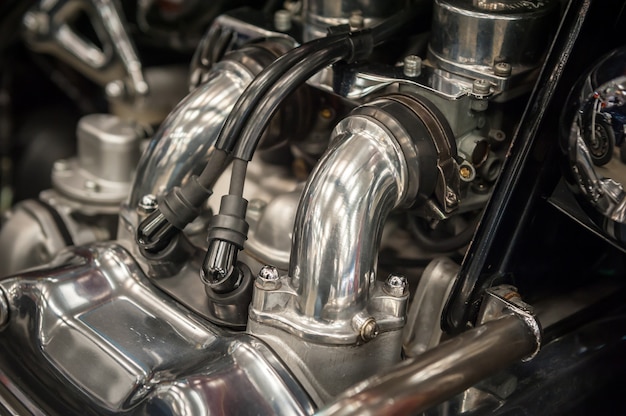
As the automotive industry continues to evolve, the market is flooded with various types of vehicles, each designed to cater to different preferences and needs. Two popular choices that often perplex car buyers are MPVs (multi-purpose vehicles) and SUVs (sports utility vehicles) due to their similar appearances and versatility. In this article, we will delve into the key differences between an MPV and an SUV, helping you make an informed decision when purchasing your next vehicle.
Introduction: Unveiling MPVs and SUVs
Before discussing the differences, it’s important to understand what MPVs and SUVs actually are.
An MPV, or “Kereta Penumpang Bermulti-Guna” as it is commonly known in Malay, is a type of automobile designed to be spacious and versatile, primarily focused on maximizing passenger comfort and accommodating more people. MPVs typically feature three rows of seating, offering ample legroom, storage space, and convenient access to the cabin.
On the other hand, an SUV, or “Kereta Penumpang Utiliti” in Malay, is known for its robustness, power, and off-road capabilities. SUVs are often based on truck platforms and exhibit a higher ground clearance, allowing them to handle rougher terrain and adverse weather conditions with greater ease.
Body: Contrasting MPVs and SUVs
1. Design and Exterior
One of the most distinctive differences between MPVs and SUVs lies in their design and exterior features. MPVs, also referred to as “people carriers,” generally exhibit a more streamlined and box-like shape, emphasizing practicality and maximizing interior space. In comparison, SUVs feature a more rugged and aggressive design, with muscular lines and a taller stance that exudes strength and dominance.
2. Seating Capacity and Configuration
When it comes to carrying capacity, MPVs tend to outshine SUVs. MPVs are designed to accommodate more passengers comfortably, with most models offering seating for seven to eight individuals across three rows. Furthermore, MPVs typically have a flexible seating configuration, allowing you to fold or remove seats to create extra luggage space when necessary. SUVs, on the other hand, normally provide seating for five to seven passengers, with a fixed seating arrangement that offers limited flexibility.
3. Handling and Performance
SUVs are renowned for their superior off-road capabilities and robust performance. Thanks to their stronger chassis and higher ground clearance, SUVs can conquer rough terrains and face challenging weather conditions effortlessly. In contrast, MPVs prioritize comfort and convenience over off-road capabilities, providing a smoother and more refined driving experience on well-paved city roads.
4. Towing Capacity
If you require a vehicle for towing purposes, SUVs generally offer a higher towing capacity compared to MPVs. Due to their sturdy body-on-frame construction and powerful engines, SUVs are well-suited for hauling trailers, boats, and other heavy loads. MPVs, on the other hand, have a more limited towing capacity and are better suited for transporting people rather than cargo.
5. Fuel Efficiency
When considering fuel efficiency, MPVs tend to have the upper hand over SUVs. Typically built on a car-based platform, MPVs boast better aerodynamics and lower weight, resulting in improved fuel economy. On the flip side, SUVs, designed with off-road capabilities in mind, usually consume more fuel due to their larger engines and heavier bodies.
Conclusion: Choosing Between MPVs and SUVs
In conclusion, while both MPVs and SUVs offer distinct advantages, it ultimately comes down to your lifestyle and specific requirements. If you prioritize spaciousness, versatile seating options, and passenger comfort, an MPV is likely the best choice for you. On the other hand, if you desire ruggedness, towing capacity, and the ability to conquer off-road adventures, an SUV should be your go-to option. Consider these factors carefully and take your pick based on what truly matters to you.
FAQ (Frequently Asked Questions)
Q1: Can an SUV accommodate more passengers than an MPV?
A: Generally, MPVs have a larger seating capacity and can accommodate more passengers than SUVs.
Q2: Are SUVs more fuel-efficient than MPVs?
A: No, SUVs usually have lower fuel efficiency compared to MPVs due to their larger size and off-road capabilities.
Q3: Which vehicle is better for off-roading, an MPV or an SUV?
A: SUVs are built with off-road capabilities in mind and are a better choice for adventurous off-roading experiences.
Q4: Do MPVs or SUVs provide better cargo space?
A: Although SUVs offer decent cargo space, MPVs are generally designed to provide more versatile and extensive storage options.
Q5: Can an MPV tow heavy loads like an SUV?
A: While MPVs have a more limited towing capacity, SUVs are specifically designed for towing heavy loads and are typically more capable in this aspect.